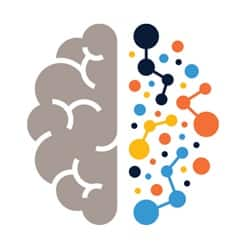8 Types of Psychology With Real-World Perspective

Know before you read
At SNHU, we want to make sure you have the information you need to make decisions about your education and your future—no matter where you choose to go to school. That's why our informational articles may reference careers for which we do not offer academic programs, along with salary data for those careers. Cited projections do not guarantee actual salary or job growth.
The study of psychology, encompassing various branches such as abnormal psychology, biopsychology and social psychology, can be personally and professionally rewarding. Concentrations in this field offer diverse opportunities to learn about people and how they interact with others in the workplace, in relationships and when facing health, financial and other life challenges.
Deciding to pursue a psychology major can be a big decision, and it can also be challenging with so many various types of psychology to choose from. Here's a look at eight branches of psychology, with real-world perspectives from some of the faculty in Southern New Hampshire University's (SNHU) psychology programs to help.
1. Abnormal Psychology
Focuses on the origin and constructs of mental illness, looking at unusual patterns of behavior, emotions and thoughts.
The Gist: How deviations from the norm are addressed and treated.
Abnormal psychologists focus on the origins and constructs of mental illness and look at unusual patterns of behaviors, emotions and thoughts. They are involved in assessing, diagnosing and treating mental disorders.
"When most people think about abnormal behavior, they think in terms of the extremes, of unusual and shocking examples with a sensational allure," said Dr. Nanette Mongelluzzo, an adjunct instructor of social sciences programs at SNHU.

Mongelluzzo offered insights into the nuances of abnormal psychology.
"Abnormal simply means 'away from the normal,'" she said. She noted that various factors influence this interpretation, including belief systems, culture, family background, religion and other societal norms.
Abnormal psychology, as a specialization, delves into understanding these deviations.
"It's based on the study of normal psychology, normal adjustment, societal interactions, group interactions, roles that are expected, personal maturity and so on," Mongelluzzo said.
Professionals in the field, she said, including psychotherapists and clinical mental health experts, recognize abnormal psychology as a study of these deviations from the norm.
Pursuing a master's in psychology can help position you for success in various career opportunities. Mongelluzzo said that with an advanced degree, career choices could potentially include:
- Clinical or research psychologist
- Criminal profiler
- Developmental/school psychologist
- Forensic psychologist
- Licensed professional counselor
- Marriage and family therapist
Clinical psychologists are also employed or serve as advisors in many areas of government, prison systems, the military, and educational institutions and on teams with other professionals working for organizations as diverse as sports, media and international human rights organizations.
2. Biopsychology
Concentrates on the relationship between behavior and biology.
The Gist: How biological changes lead to changes in behavior.
Biopsychology, a critical branch of psychology, concentrates on the relationship between biology and behavior, especially the brain and neurotransmitters' role in controlling and regulating behavior. Biopsychologists want to know how biological changes lead to changes in behavior.
There are many different career options available to biopsychologists; according to Very Well Mind, these include:
- Behavioral neuroscientist
- Cognitive neuroscientist
- Comparative psychologist
- Evolutionary psychologist
- Neurologist
The locations you may work include drug companies, government agencies and universities, among other industries.
Biological psychologists also study "behavior-changing brain lesions, chemical responses in the brain and brain-related genetics," according to the American Psychological Association (APA). Biopsychology is also sometimes referred to as physiological psychology or psychobiology, according to the APA.
3. Social Psychology
Examines what people think and feel.
The Gist: How others impact your behavior.
Social psychologists study what people think and feel and how others impact behavior. They look at group membership, prejudice and discrimination, attitudes and persuasion, social impacts on self-esteem and other areas.
![]() According to the APA, how you view yourself in relation to the world influences factors such as behavior and belief. Another factor that affects behavior and how people view themselves is the opinions of others. Social psychologists are interested in interpersonal relationships and using psychology to improve them.
According to the APA, how you view yourself in relation to the world influences factors such as behavior and belief. Another factor that affects behavior and how people view themselves is the opinions of others. Social psychologists are interested in interpersonal relationships and using psychology to improve them.
The training of a social psychologist combines human behavior with scientific research methods, so job opportunities and work settings are diverse. Many social psychologists work in educational environments where they can teach, conduct research and run laboratories, according to the APA.
Other occupations include working for government offices, nonprofit organizations, hospitals, social service agencies and private corporations. The range of options for a social psychologist varies so much that careers can include research, marketing, politics and even technology design.
4. Cognitive Psychology
Focuses on the processes underlying attention, decision making, language, memory and problem solving.
The Gist: How specialized techniques are used to understand these processes.
Cognitive psychology looks at the mental processes that relate to thinking, memory and language and makes discoveries about these processes by observing behavior, according to the APA. Current research has focused on information processing theories developed in computer science and artificial intelligence, the APA reported.
Most psychologists working in brain science and cognition work in academic settings where they teach, conduct research or both, according to the APA. Their expertise is invaluable in growth areas such as human-computer interaction, software development, organizational psychology and as consultants throughout the private sector.
Many cognitive psychologists work directly with clients and patients in private practice and clinical settings; others serve in positions within government, private research centers and treatment facilities and even as expert witnesses for court cases.
Demand for brain scientists and cognitive psychologists has fluctuated throughout the years; however, according to the APA, the subfield is rising. With technology continually evolving and cures for health issues like Alzheimer's disease being evasive, the APA expects an increase in demand for brain science and cognition experts.*
5. Developmental Psychology
Working with people of all ages, developmental psychologists:
- Study how people grow and adapt, physically and psychologically
- Flag developmental delays and serious health issues
- Assist with interventions to get people back on track
The Gist: Why cognitive, physical, personality and social factors play into how we evolve developmentally.
 Developmental psychology involves the research and application of scientific knowledge to areas such as education, childcare and policy, according to Dr. Jay Greiner, an adjunct social sciences instructor who has taught various psychology courses at SNHU since 2016.
Developmental psychology involves the research and application of scientific knowledge to areas such as education, childcare and policy, according to Dr. Jay Greiner, an adjunct social sciences instructor who has taught various psychology courses at SNHU since 2016.
"Developmental psychologists study how people grow and adapt (physically and psychologically) from conception to death and conduct research to understand and support people to reach their full potential," he said.
These psychologists can apply their expertise across the entire human lifespan, addressing the needs of each age group with specialized approaches.
"Developmental psychologists work with people of all ages to understand and support their growth, including gerontology and working with the aging baby boomer population," Greiner said. "(In their work with young children), they flag developmental delays and serious health conditions and assist with interventions to help children get back on track to normal development."
Greiner said that developmental psychologists may work as counselors, childcare workers and managers, child and adolescent therapists and teachers.
 "Developmental psychologists play an integral role in designing, evaluating and implementing cross-cultural approaches to human life in many settings," said Dr. Nickolas H. Dominello, a senior associate dean of social sciences at SNHU with a PhD in Psychology and almost two decades of experience as an educator. "Focusing on cognitive, physical, social and personality factors, developmental psychologists often work in academia, healthcare or education."
"Developmental psychologists play an integral role in designing, evaluating and implementing cross-cultural approaches to human life in many settings," said Dr. Nickolas H. Dominello, a senior associate dean of social sciences at SNHU with a PhD in Psychology and almost two decades of experience as an educator. "Focusing on cognitive, physical, social and personality factors, developmental psychologists often work in academia, healthcare or education."
According to the APA, developmental psychologists study human growth over the lifespan, including physical, cognitive, social, intellectual, perceptual, personality and emotional growth.
Developmental psychologists may work in more applied settings, such as a healthcare facility or clinic, to help evaluate and treat people with developmental disabilities. Among other settings, developmental psychologists can work in assisted living homes for the elderly, hospitals, mental health clinics and centers for the homeless.
6. Personality Psychology
Studying personality and how it varies among individuals, relying on research theories related to personality traits, evolution, biology, humanism, behavior and social learning.
The Gist: Why it's important to understand how personality develops and its similarities and differences between individuals.
Personality psychology is the study of personality and how it varies among individuals. Personality psychologists rely on research and theories on personality traits, evolution, biology, humanism, behavior and social learning to determine what makes a person unique.
Understanding how personality develops and its similarities and variances among individuals is vital. Personality psychologists assess, diagnose and treat personality disorders that negatively impact a person's quality of life.
 "I focus on personality factors related to work and school success," said Jeral Kirwan, an adjunct social sciences instructor at SNHU. "My recent research has looked at personality characteristics and dispositions of online learners and educators and how those factors relate to communication, performance and satisfaction."
"I focus on personality factors related to work and school success," said Jeral Kirwan, an adjunct social sciences instructor at SNHU. "My recent research has looked at personality characteristics and dispositions of online learners and educators and how those factors relate to communication, performance and satisfaction."
Kirwan teaches graduate psychology courses on research methods and ethics. He has experience with personality and social psychology, and has also done a lot of work in organizational psychology.
Personality psychologists may specialize in diverse fields such as conflict resolution, leadership development, research, human resources, marketing, teaching, public policy analysis and others.
7. Forensic Psychology
Applying psychosocial knowledge to civil and criminal law, conducting forensic assessments for the court system to determine custody evaluations and competency to stand trial.
The Gist: Why this field is called the intersection of psychology and law.
 "Forensic psychology has been called 'the intersection of law and psychology,' and it's a field in which psychologists (most commonly holding licenses) apply their psychosocial knowledge to civil and criminal law," said Kathy Edwards, an adjunct social sciences instructor at SNHU.
"Forensic psychology has been called 'the intersection of law and psychology,' and it's a field in which psychologists (most commonly holding licenses) apply their psychosocial knowledge to civil and criminal law," said Kathy Edwards, an adjunct social sciences instructor at SNHU.
Beyond her academic role, Edwards is a licensed clinical professional counselor, who uses Cognitive Behavioral Therapy (CBT) and Eye Movement Desensitization and Reprocessing (EMDR) in her practice. She also provides forensic services to local courts, including custody evaluations and parenting coordination.
She said that forensic psychologists generally hold a PhD in the field or Doctor of Psychology (PsyD) degree, which are not currently offered at SNHU. Yet, many careers are open for master's-level clinicians as well.
"Typical careers involve conducting forensic assessments for the courts' system — such as a person's competency to stand trial or in custody assessments," Edwards said, "but opportunities exist in police psychology, prison psychology and consulting, for example, as an expert witness."
According to the APA, an essential goal of forensic psychology is the description and measurement of capacities relevant to legal questions. As a result, they attempt to create relevant, accurate and credible conclusions that inform legal arguments but do not interrupt the process. Additionally, there is a particular focus on clarifying the conflicts between psychology ethics and the demands of law.
8. Industrial-Organizational Psychology
Focused on the scientific study of working, this field has critical relevance to individuals, businesses and society by
- Applying research to issues facing employees, teams and organizations
- Examining employee well-being and attitude, employer-to-employee relationships and overall workplace behavior
The Gist: How workplace relationships affect the lives on the job and beyond.
According to The Society for Industrial and Organizational Psychology (SIOP), this branch of psychology is the scientific study of working. It has critical relevance to individuals, businesses and society.
Industrial-organizational psychology applies research to issues facing individuals, teams and organizations. It examines employee well-being and attitude, employee-employer relationships and the entire breadth of workplace behavior.
 Many industrial-organizational psychologists teach in academia and conduct research. Dr. Thomas MacCarty, an associate dean of social sciences programs at SNHU, said that some entry-level jobs, such as those with industrial-organizational psychology concentrations, include:
Many industrial-organizational psychologists teach in academia and conduct research. Dr. Thomas MacCarty, an associate dean of social sciences programs at SNHU, said that some entry-level jobs, such as those with industrial-organizational psychology concentrations, include:
- Compensation analyst
- Human resources assistant and coordinator
- Industrial-organizational psychologist assistant
- Organizational development assistant
- Research assistant
- Retention specialist
- Training and development coordinator
- Workplace behavior analyst
Experienced as a probation and parole officer, MacCarty also established a private addiction counseling practice before entering the educational side of psychology. Now overseeing the Master of Science in Psychology program at SNHU, MacCarty said he was drawn to industrial-organizational psychology to learn about the issues employees face daily with their employers.
"Industrial-organizational psychology is, in my opinion," he said, "one of the most important subfields of psychology as the clear majority of us work close to 30% of our lives."
MacCarty said that some roles for people with more experience and education, such as a master's in organizational psychology, include:
- Consulting opportunities
- Industrial-organizational psychologists
- Management positions
Find Your Program
According to the APA, industrial-organizational psychologists are practitioners with expertise in the design, execution and interpretation of psychology research. Industrial-organizational psychology then utilizes its findings to address human and organizational problems in organized work.
Industrial-organizational psychologists:
- Assess consumer preferences, customer satisfaction and marketing strategies
- Coach employees
- Develop systems to evaluate the performance of individuals and organizations
- Evaluate the effectiveness of designed training programs
- Identify training/development needs
- Optimize jobs and quality of work-life
Each branch of psychology offers unique insights into the field as a whole. The rich diversity of the branches of psychology underscores the expansive reach of the industry and its impacts on everyday life.
Education can change your life. Find the SNHU psychology program that can best help you meet your goals.
Joe Cote is a writer and organic marketer at Southern New Hampshire University (SNHU), where he has worked since 2016. Previously he spent more than a dozen years as a reporter and editor at weekly and daily newspapers in Vermont and New Hampshire. He lives near SNHU's Manchester, New Hampshire campus with his wife and daughter. Connect with him on LinkedIn.
Explore more content like this article

Academic Spotlight: Dr. Laman Tasch, Associate Dean of Academic Strategy, Social Sciences

Why Earning His BA in Political Science Mattered to Anthony Fernandez

What Can You Do With a Master’s in Criminal Justice?
About Southern New Hampshire University

SNHU is a nonprofit, accredited university with a mission to make high-quality education more accessible and affordable for everyone.
Founded in 1932, and online since 1995, we’ve helped countless students reach their goals with flexible, career-focused programs. Our 300-acre campus in Manchester, NH is home to over 3,000 students, and we serve over 135,000 students online. Visit our about SNHU page to learn more about our mission, accreditations, leadership team, national recognitions and awards.


